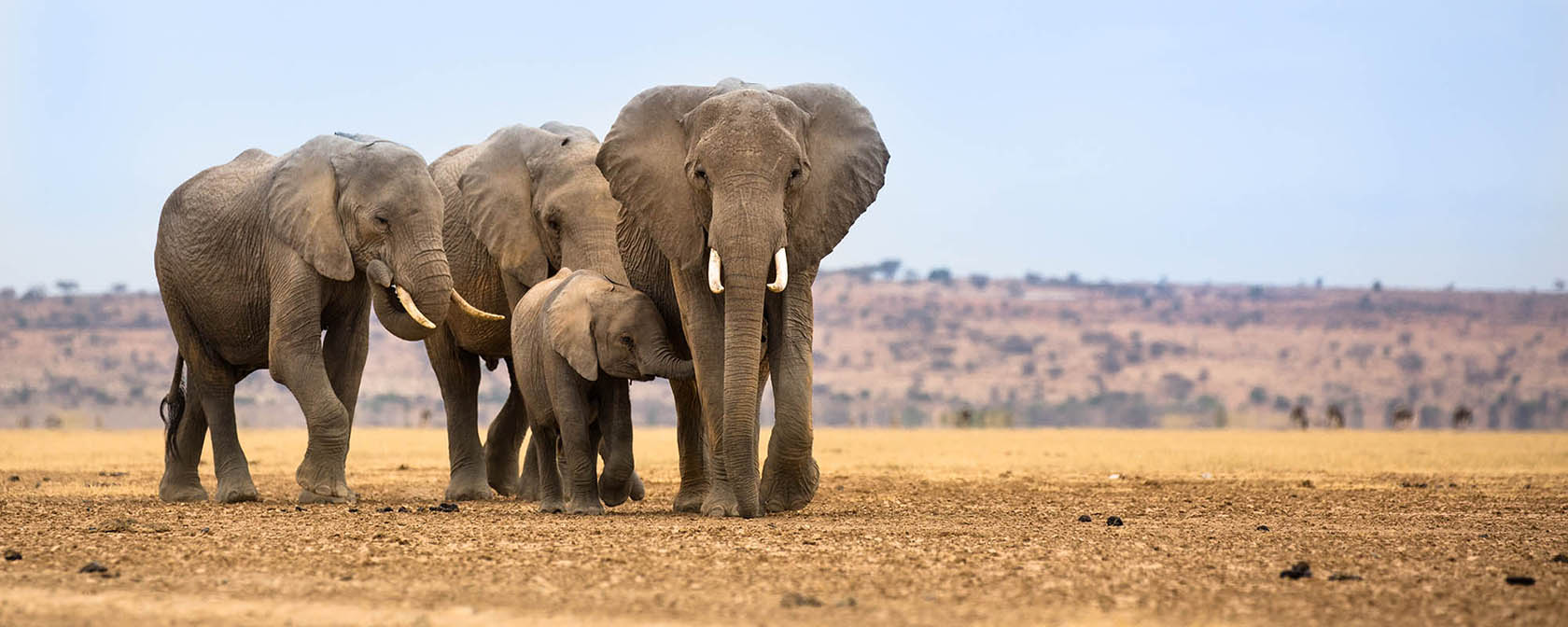By Sara Amundson and Kitty Block
News has come out that another bull elephant was shot and killed in Tanzania, reportedly by an American trophy hunter from Texas. This is the third bull, believed to likely be another “super tusker,” beloved by locals, gunned down near the Tanzanian-Kenyan border, part of the Greater Amboseli Ecosystem, within the past six months.
“Super tusker” elephants are mature male elephants who have at least one tusk weighing 100 pounds, and their genetic makeup is extremely rare: It’s estimated that there are as few as 50 “super tusker” elephants left in Africa. Following the hunt, the hunters allegedly burned what remained of the elephant’s body.
These hunts come at a time when the U.S. Fish and Wildlife Service has itself proposed new regulations that would significantly restrict the import of elephant trophies, after having taken the position since 2014 that elephant hunting in Tanzania is not managed consistent with conservation principles.
In elephant societies, which are highly social and complex, every elephant plays a crucial role, and mature male elephants are essential for thriving elephant herds. Studies have found that as they age, male elephants dedicate more of their energy toward reproducing. Due to a well-defined hierarchy, it is only by age 35-40+ years that male elephants consistently reproduce, and by this time, 75% of bulls will have died making this age class already disproportionately small. The gunning down of older male elephants by trophy hunters reverberates through the whole elephant society.
Mature elephant bulls also act as role models for younger male elephants. When an elephant bull is killed, so is the individual animal’s vital social knowledge and experience, which can no longer be passed down to younger, inexperienced members of the society. Without older bulls, young bull elephants may become more aggressive and display delinquent behavior, including moving into risky environments, putting themselves and human beings in potential danger.
In an effort to prevent further harm to the elephants of this region, three leading nonprofit conservation organizations (ElephantVoices, Big Life Foundation and the Amboseli Trust for Elephants) released a statement appealing for “an end to elephant trophy hunting in the Enduimet Area of Tanzania.” We support them in this appeal, as their statement highlights the tremendous genetic, scientific and ecological importance of the cross-border Amboseli elephant population inhabiting both Kenya and Tanzania.
Classified as endangered on the IUCN Red Data List of Threatened Species, African Savannah elephants already have the odds stacked against them and are just a step or two away from extinction. Habitat loss and poaching for the illegal wildlife trade already loom over elephant families as existential threats. That the scourge of trophy hunting is still permitted at all could mean our children or grandchildren will inhabit a world where these animals no longer exist. How will we explain to them that, amid other threats, we allowed these animals to also be gunned down by wealthy trophy hunters for “fun”?
As Audrey Delsink, elephant behavior expert and wildlife director for Humane Society International/Africa, said: “The intrinsic value that these bulls bring to elephant society through their genetics, as repositories of social knowledge and as keystones of the environment, is irreplaceable. The killing of these iconic animals isn’t just a biological travesty but a moral tragedy and a stain on humanity’s conscience.”
Kitty Block is CEO of the Humane Society of the United States.




